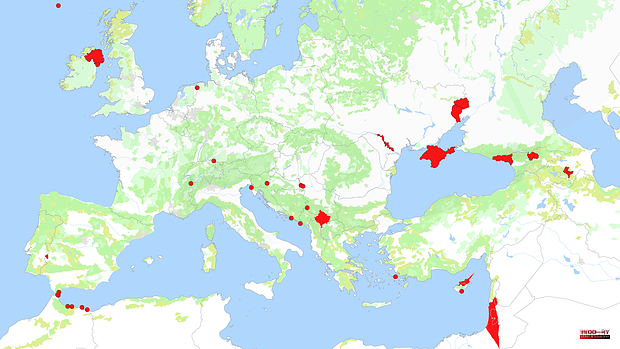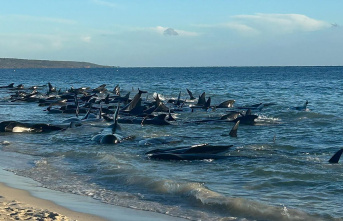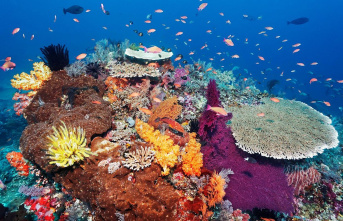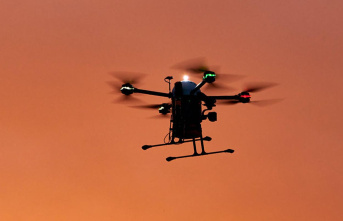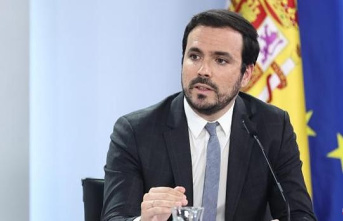Russia's invasion of Ukraine is redefining Europe's historically unstable borders. Beyond the Russian imperialist desire, the current dividing lines in other parts of the continent do not always have the approval of neighboring countries, or, at least, of irredentist sectors that claim their own national map.
Spain is one of the European countries with the largest number of enclaves questioned by its neighbors, mainly located in North Africa. Despite being under Spanish administration for five centuries, long before the existence of Morocco as a country, the rhetoric of the Alawite kingdom regularly stirs up its annexationist propaganda.
To the autonomous cities of Ceuta and Melilla, with more than 80,000 inhabitants each, we must add the squares of sovereignty off the coast of Morocco: the Chafarinas Islands, the Alhucemas Islands
and the rock of Vélez de la Gomera. The Perejil islet, uninhabited, experienced a military incident twenty years ago.
Spain also maintains a pending issue with Portugal on account of the town of Olivenza, in the province of Badajoz. Occupied by the Spanish army at the beginning of the 19th century, the territory passed to the Spanish Crown, according to the treaties of the time, never annulled or repealed. Portugal does not formally claim Olivenza or the neighboring town of Táliga, but neither does it renounce its claim, giving wings to Portuguese irredentist groups.
Also in the Iberian Peninsula is the issue of the Rock of Gibraltar with the United Kingdom. Occupied by the British at the beginning of the 18th century, the cession was ratified in the Treaty of Utrecht. The historical claims of the different Spanish governments, with greater or lesser intensity, have always been dismissed.
Gibraltar is not the UK's only pending issue on the continent. The main one, the border between the British Northern Ireland and the Republic of Ireland. Irish irredentist movements, with political force but already far from arms, demand the unity of the island as a single country. Apart from maximalist positions, the drawing of the border after the partition of the island in the 1920s left the fringe of the territory of Lough Foyle, in the Foyle River estuary, whose waters are disputed by the two governments.
The British have another pending issue on the continent with three more countries involved, one of them again Ireland. The uninhabitable rock of Rockall, in the North Atlantic, belongs to the United Kingdom, but its waters are also disputed by Ireland, Iceland and Denmark (due to the proximity of the Faroe Islands). The four countries have litigated in the United Nations without settling the issue yet.
On the mainland, Lake Constance separating Switzerland, Austria and Germany is controversial. Officially there is no drawn border, since there is no agreement between countries. Switzerland believes that the line should be drawn in the middle of the lake, Austria is in favor of a sovereignty shared by the three countries, and Germany does not have an official position. Meanwhile, this international anomaly continues.
Between Germany and the Netherlands there was also an unresolved border issue until the last decade. The control of the waters of the Ems River estuary, which divides the two countries, was the subject of litigation, but bilateral negotiations settled the issue with an agreement for the distribution between the two.
The top of Mont Blanc, in the Alps mountain range, is the subject of controversy between Italy and France. Although since the mid-19th century they agreed to share it, the geographic institutes of the respective countries appropriated the entirety in their cartography.
The division of the Balkan War left some fringes. The most important of all, Kosovo, a State with limited recognition after its unilateral declaration of independence. Serbia still considers it an autonomous region within its territory. Half of the United Nations countries, including Spain, do not recognize it as a sovereign state.
Serbia also has pending issues with Croatia, over the islands of Vukovar and Šarengrad, in the Danube, a natural border; and with Bosnia and Herzegovina, through the enclave of Sastavci, Bosnian territory inside the Serbian borders.
Bosnia and Croatia, in turn, maintain a dispute over the islets of Veliki Školj and Mali Školj, off the coast of Neum, Bosnia's only outlet to the sea. Croatia also has an issue with Slovenia over the Gulf of Piran, whose waters remain in dispute, and, inland, over a border military complex near Sveta Gera. The Montenegrin island Prevlaka is also claimed by Croatia.
Another island in southeastern Europe is the subject of dispute: Imia, as the Greeks call it; or Kardak, as the Turks call it for themselves. Greece and Turkey, historically bad neighbors, in turn maintain numerous disputes over the delimitation of territorial waters, exclusive economic zones and airspace.
More important still is the dispute on the island of Cyprus, divided in two after the Turkish invasion in the 1970s. The Turkish Republic of Northern Cyprus, known as Northern Cyprus, is only recognized as a state by Turkey.
Cyprus, in turn, has a pending issue with the United Kingdom over the sovereign bases of Akrotiri, in the south of the island, and Dekelia, near the border with Northern Cyprus. The British secured these areas in the 1960s after the independence of their former colony to maintain control of their military bases on the island. London has never shown any intention of giving them up, despite being seen in Cyprus as a colonial stain.
Russia's violation of Ukraine's borders began in 2014 with the annexation of the Crimean peninsula and support for the unilateral declaration of independence of the Donetsk and Lugansk republics. The Russian invasion since February this year is now limited to these two Donbass regions.
Moldova has a stalled conflict from the post-Soviet era. The territory of Transnistria, on the border with Ukraine, is de facto independent. Russia maintains military forces there, even though the Kremlin does not recognize it as a country. The invasion of Ukraine has intensified at times the fear of a Russian entry.
Georgia is another destabilized country on its border with Russia. Abkhazia and South Ossetia are de facto independent from the Tbilisi government after the 2008 war, with the secessionists supported by Moscow. Another armed conflict has also recently shaken the Caucasus. Upper Karabakh, territory in dispute between Azerbaijan, winner of the contest, and Armenia.

